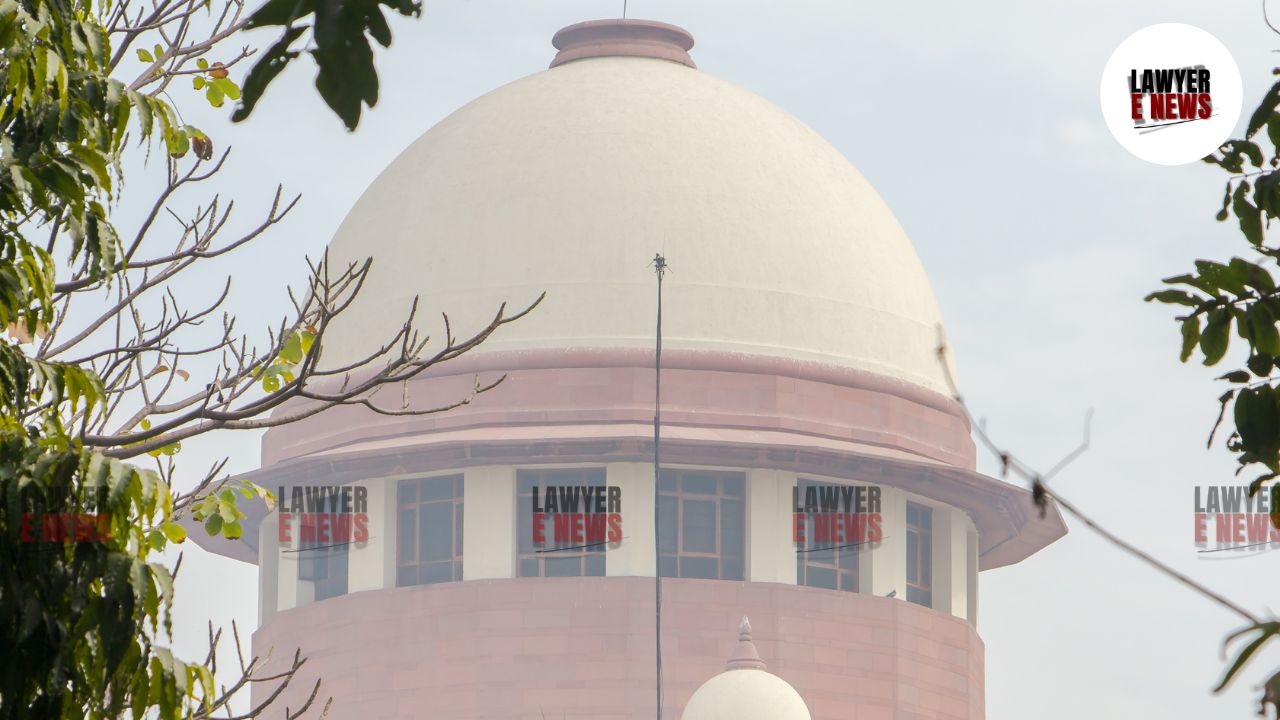-
by Admin
16 February 2026 1:47 PM



The jurisdiction in a bail application ends when a bail application is finally decided, either granting or refusing bail” In a clear rebuke to judicial overreach, the Supreme Court of India, on 24 March 2025, in the case of State of Uttar Pradesh v. Dr. Ritu Garg & Ors., set aside the High Court’s direction to the CBI to register a case based on a witness’s Section 161 CrPC statement during the hearing of a bail application. The Court declared that such a direction falls beyond the legal limits of jurisdiction under Section 439 of the Code of Criminal Procedure, emphasizing that bail hearings must remain confined strictly to the question of granting or refusing bail.
High Court Cannot Use Bail Hearings to Order Investigations The Supreme Court found fault with the High Court’s decision to rely on a statement recorded under Section 161 CrPC and the oral submission of an Investigating Officer present in court to justify its directive for a CBI probe. The bench, comprising Justices Sudhanshu Dhulia and K. Vinod Chandran, observed:
We are afraid that no exceptional or extraordinary circumstance has been brought out from the Section 161 Cr.P.C. statement or a statement made by the Investigating Officer… We are also bound by the precedents which unequivocally hold that there can be no such direction issued in a bail application.”
The Court reiterated the principle that courts must act within their jurisdiction, especially in criminal proceedings:
“The jurisdiction in a bail application ends, when a bail application is finally decided, either granting or refusing bail.”
Supreme Court Reiterates Boundaries of Section 439 CrPC
Referencing the judgment in State Represented by Inspector of Police v. M. Murugesan, the Court highlighted that even retaining a bail file to issue administrative directions concerning the investigation was impermissible. The bench noted that such misuse of the bail jurisdiction has been repeatedly disapproved in prior rulings.
In Seemant Kumar Singh v. Mahesh PS and Union of India v. Man Singh Verma, the Court had already cautioned:
“Time and again, the act of courts overstepping the limits of its jurisdiction has clearly been frowned upon.”
The Supreme Court held that the High Court’s direction to the CBI was not only procedurally flawed but lacked any compelling factual foundation. The original statement under Section 161 did not reveal circumstances so exceptional as to require an extraordinary remedy:
“No such exceptional or extraordinary circumstance has been brought out… which would justify a departure from settled principles.”
On Consent for CBI Investigation and Federal Structure The judgment also took note of the State Government’s previous request to the Centre to transfer the matter to the CBI, which had been declined on 13 April 2023. The apex court underscored that directing a CBI investigation without the State’s consent is permitted only in rare and compelling cases.
Drawing from State of West Bengal v. Committee for Protection of Democratic Rights, the Court acknowledged that:
“It is permissible… under Article 226 or Article 32 to direct a CBI investigation even without the consent of the State Government, but this extraordinary power has to be exercised sparingly, cautiously and in exceptional situations.”
The present case, the Court ruled, did not meet that threshold.
Conclusion:
Striking down the High Court’s directive, the Supreme Court concluded:
“The impugned order is set aside to the extent the directions are issued to the C.B.I.”
The appeal filed by the State of Uttar Pradesh was accordingly allowed, with the Court making it clear that it had not interfered with the bail granted, as the State itself had not challenged that part.
This decision not only safeguards the boundaries of judicial discretion but also reaffirms the need for courts to remain within the confines of statutory authority, especially in sensitive criminal matters involving investigative prerogatives.
Date of Decision: 24 March 2025
